In April, comedian Jena Friedman had a strange encounter in Vancouver airport. She had just performed a Ted talk about the future of comedy and was heading home to the US, when someone she thought worked for airport security quizzed her about her visit.
Thinking he was probing for visa infringements, “I just said I was doing comedy. Then he asked: ‘What do you joke about?’ Stupidly, I lightly flirted with him, and was like: ‘Everything other than airport security!’ He didn’t react at all. Then I realised he was US border control. He asked again: ‘What do you joke about?’”
Friedman is a veteran of The Daily Show and The Late Show, and her standup comedy often features excoriating routines at the expense of the political establishment. “I just froze because I am a political comedian and I didn’t know what to say. Then he said: ‘Do you joke about politicians?’”
She made it home, but the incident stuck with her. Friedman lives in LA, and the recent actions of the US Immigration and Customs Enforcement “detaining anyone and everyone who looks a certain way” put her on high alert. “It was such a quick, on its face benign, interaction,” she says. “But it did feel like a scene out of The Handmaid’s Tale. I’m a blonde, white woman who looks like a Republican’s wife and I have an American passport. But what if I had said ‘Yes?’ Don’t we want to live in a country where we can joke about politicians, where we can joke about anything?”
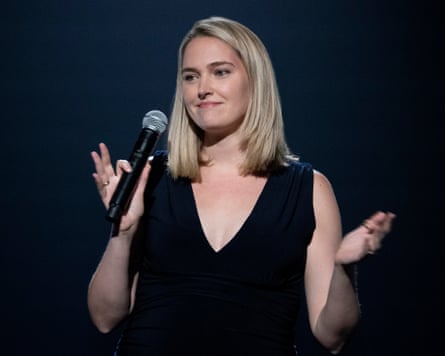
Friedman incorporated that moment into her new standup show, Motherf*cker, which she’s performing at the Edinburgh fringe. The show is a change of pace. She’s generally resisted getting personal on stage, resenting the idea that women have to be relatable to succeed in comedy, but this time it felt unavoidable, as she explores the life-changing experience of becoming a parent while her own mother was dying. “It’s about grief, but it’s also political,” she says. “The vibe in certain circles does feel like we’re grieving. So there’s something about my show that’s connecting to the larger moment.”
Friedman is among a crop of US comedians with roots in topical comedy appearing at this year’s fringe. Another stalwart of US political comedy, Michelle Wolf, is back, too, while standup and former Saturday Night Live writer Sam Jay is making her festival debut.
Wolf earned her stripes on The Daily Show and Late Night with Seth Myers, and gained notoriety with her 2018 set at the White House Correspondents’ Dinner, in which she roasted Trump and his collaborators. These days, she lives in Barcelona, although returns to the US regularly for comedy work. She’s yet to encounter border trouble but, with reports of people with green cards and citizens being detained, she says: “I’m keeping an eye on it.”
Comedians Rosie O’Donnell and Ellen DeGeneres have both said that the state of US politics has forced them out of the country – O’Donnell to Ireland and DeGeneres to England. O’Donnell has written a show on just that, which she performed for the first week of the fringe. Wolf is happy with her move to Barcelona, and feels her comedy has benefited from other cultural perspectives, but returns to the US because “the audiences are great” and there’s plenty of work. While other US comedians have also discussed the idea of moving to Europe, she thinks it won’t happen until there’s “an impetus to go, something I don’t think is far off, like: you can’t talk about this any more, you can’t talk about that any more”.
Last month, satirist Stephen Colbert announced that network CBS had cancelled The Late Show after 33 years. Many thought the timing, three days on from Colbert criticising CBS parent company Paramount for settling a lawsuit with Donald Trump, was suspect. Fellow late-night talkshow host Jon Stewart criticised the move on his podcast and pointed to wider fear across the industry.: “There are a lot of things that will never be made, that you will never know about, that will be killed in the bed before they ever had a chance because of this chilling effect.”
Friedman’s glad to see Colbert and Stewart speaking out against Trump and his administration – and agrees there’s a “chill”. “The industry has already been less supportive of political comedy than they were under Biden and Obama. However, “seeing the most prominent comedians taking [Trump] to task, like Matt [Stone] and Trey [Parker] from South Park, Colbert and Stewart, that gives me hope”.
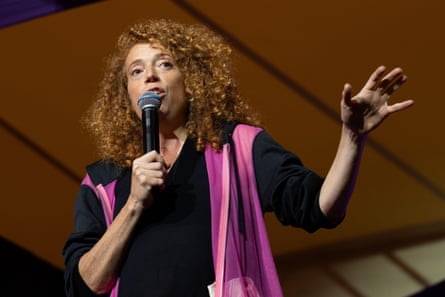
Meanwhile, Michelle Wolf’s standup merges the personal and political and her podcast, Wolf’s Thought Box, tackles current affairs. Her new show, which she’s performing while eight months pregnant at the fringe, explores life and society “through the lens of being a mom now”. There are punchlines on societal pressures for working mothers, home birth, momfluencers, gender inequalities and more. “We’re in an era now where people are talking about motherhood realistically and that’s very refreshing,” she says.
Still, political comedy isn’t absent. “I feel like I have to address the whole America and Trump thing … people expect me to say something about it.” She plans to tailor topical jokes to the day’s news but, “I don’t like making it a large part of my set, because it bores me. There’s always something crazy happening, but it’s hard to come up with creative angles other than: can you believe this?”
It’s been nine years since she first started writing jokes about Trump and, in that time, her life has transformed – she met her partner, moved abroad, and is about to have her second child. Her main feeling now is: “How are we still talking about him? How are we still in the same spot?”
Jay reflects that slow build in her show, We the People, in which she explores the state of America – looking back to the “unconfident whites” who founded the nation. She describes the show as “a fun, risky little ride” as she tries to get to the root of why the US feels so divided, and what we can do to better understand one another. “It’s this broader conversation I’ve been having about America and race,” Jay says.
The whole world feels unsettled right now and there’s an inability to consider other perspectives, Jay says. “How did we get here as Americans? Of course, I think race plays a large part in it. And how did these race relations get to the way they are? Not just blaming white people, but exploring the type of white people we’re dealing with, why they might be the way they are, their roots in England.”
Trump came up plenty during Jay’s time on SNL and appears in her fringe show as a “braggadocious” fool, unable to keep state secrets, yet smartly appealing to the frustrations of America’s poor white communities. But the conditions that created and elevated Trump are more interesting to Jay: “He’s the symptom of this, not the cause. This is a result of years and years of us doing it wrong … it’s been building for a long time and for a lot of different reasons.”
Friedman agrees: “I started working at the Daily Show in 2012, I was at Letterman before that, so I started looking at politics on a daily basis since 2010, and this is a long time coming.” This also means that, among US audiences, not everyone wants political comedy. “They’re always looking for escapism. In the first term, there was definite Trump fatigue,” Friedman says. “As a political comic, I’ve always done better in the UK than the US. It’s the UK audiences who are like: what the hell’s going on over there?” says Friedman.
The mood in US comedy is, Jay says, “the mood in America … chaos. There’s no way to keep up. People are also very desensitised. Shit just keeps happening in more extreme ways that people are losing a metric for it.”
All three agree that comedy can help share differing worldviews. “Even if it’s people we disagree with, the sign of a healthy democracy is when people can safely be on stage saying whatever we want, ideally in good faith,” Friedman says. “I support all comedians, I support freedom of expression and I want to see more of it. I want to see people more open to people they disagree with. Whenever I do political comedy, the goal is not to preach to the choir, it’s to get people to see things slightly differently.”
Jay has said that comedy can be a tool for empathy. “I look at it as a conversation. It can serve a purpose of actual understanding, understanding that we’re all humans trying to figure out a thing that doesn’t make a lot of sense – existing. Everybody is grappling with these things in their own way.”
What does the future hold for US comedians? “It’s too soon to tell,” says Friedman. “But I think everybody exercising the US first amendment in a way that’s funny and disarming is really important right now.”
Jay says: “Once I’m on stage, I’m gonna say what I’m gonna say. If I can’t come back as a result, I’ll just have to have my girlfriend come meet me in Scotland.”

 German (DE)
German (DE)  English (US)
English (US)  Spanish (ES)
Spanish (ES)  French (FR)
French (FR)  Hindi (IN)
Hindi (IN)  Italian (IT)
Italian (IT)  Russian (RU)
Russian (RU)  3 weeks ago
3 weeks ago



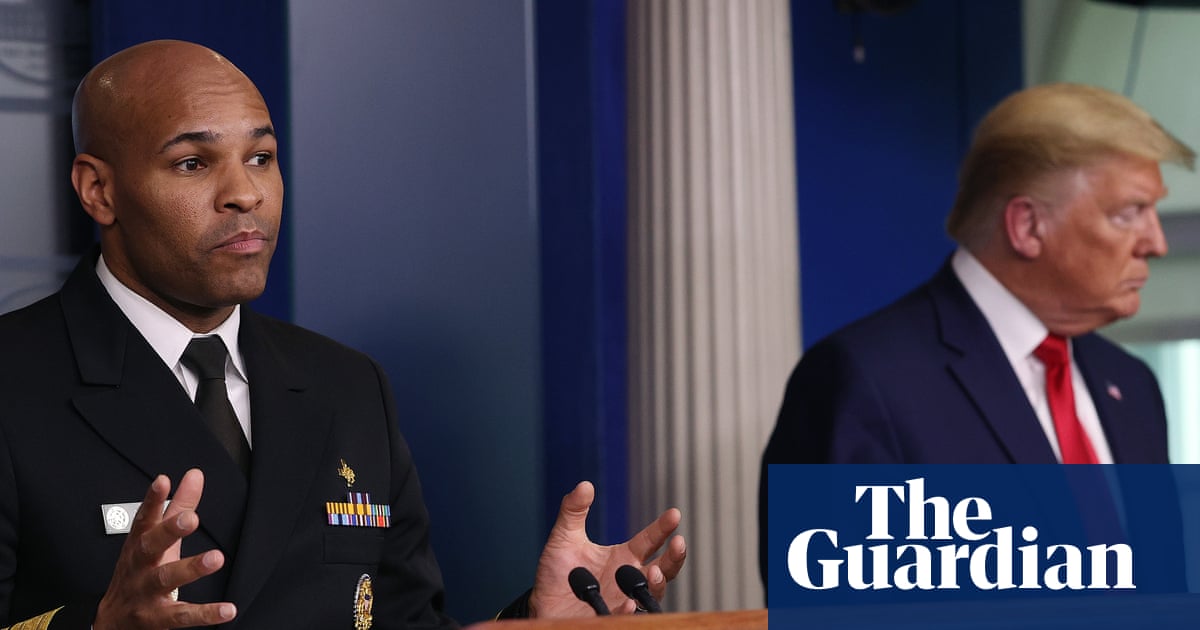


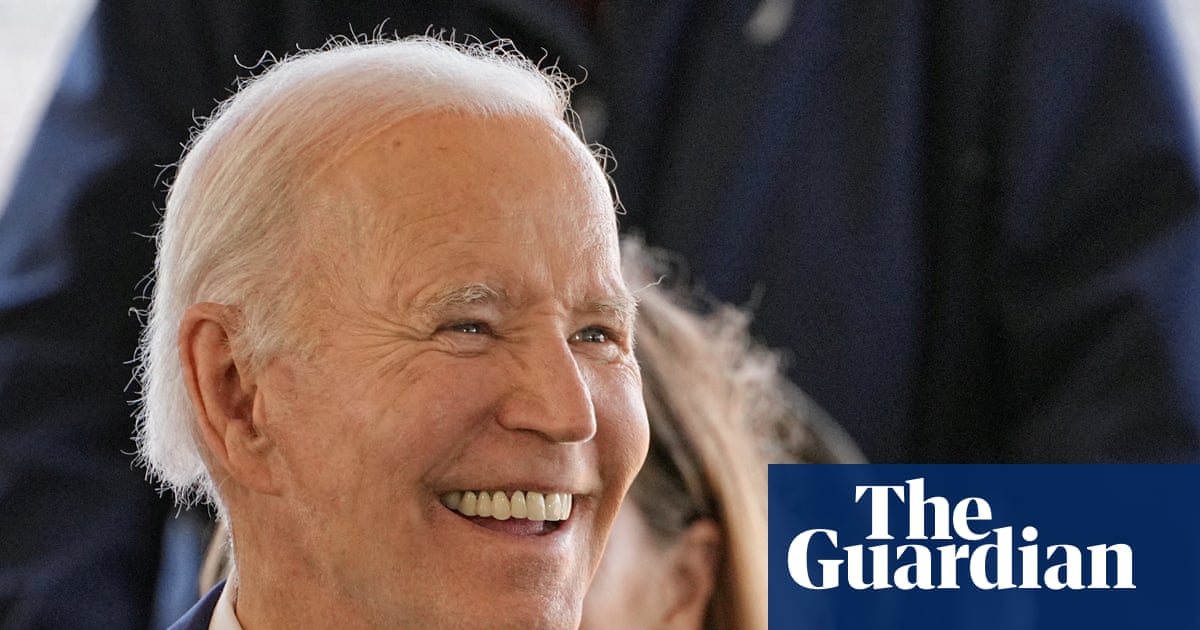






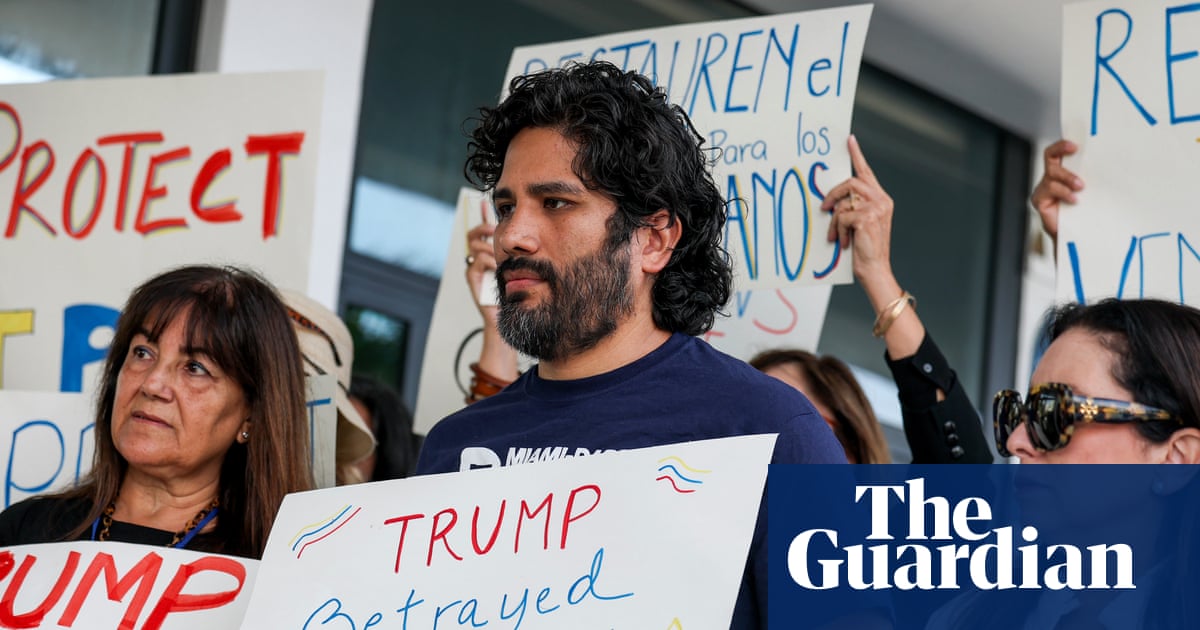


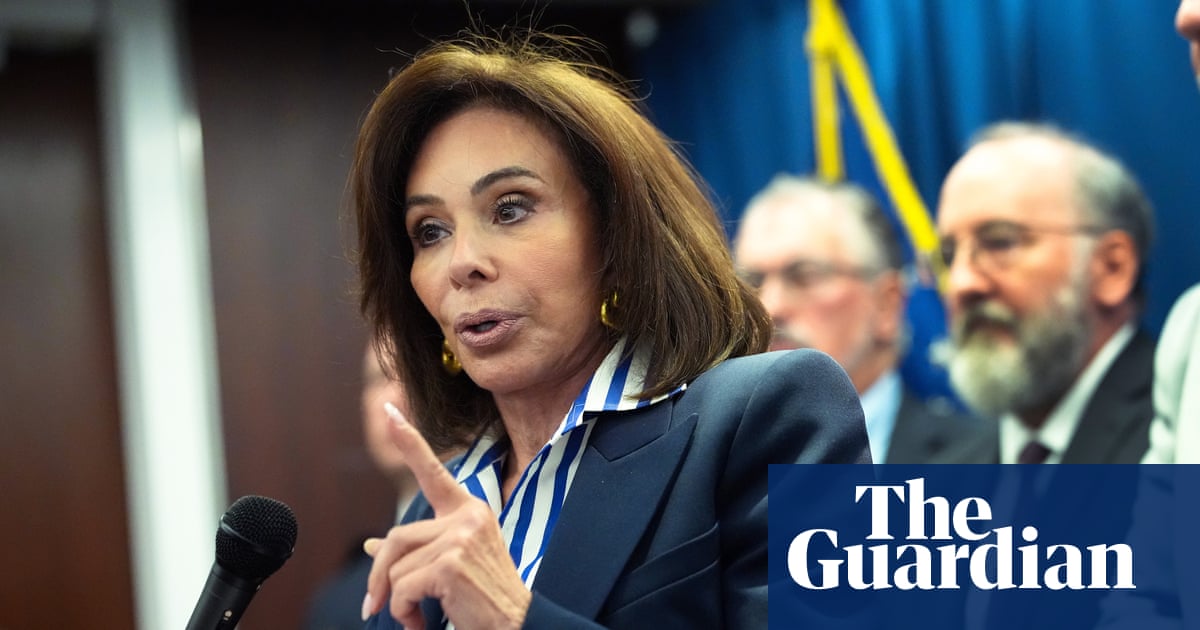





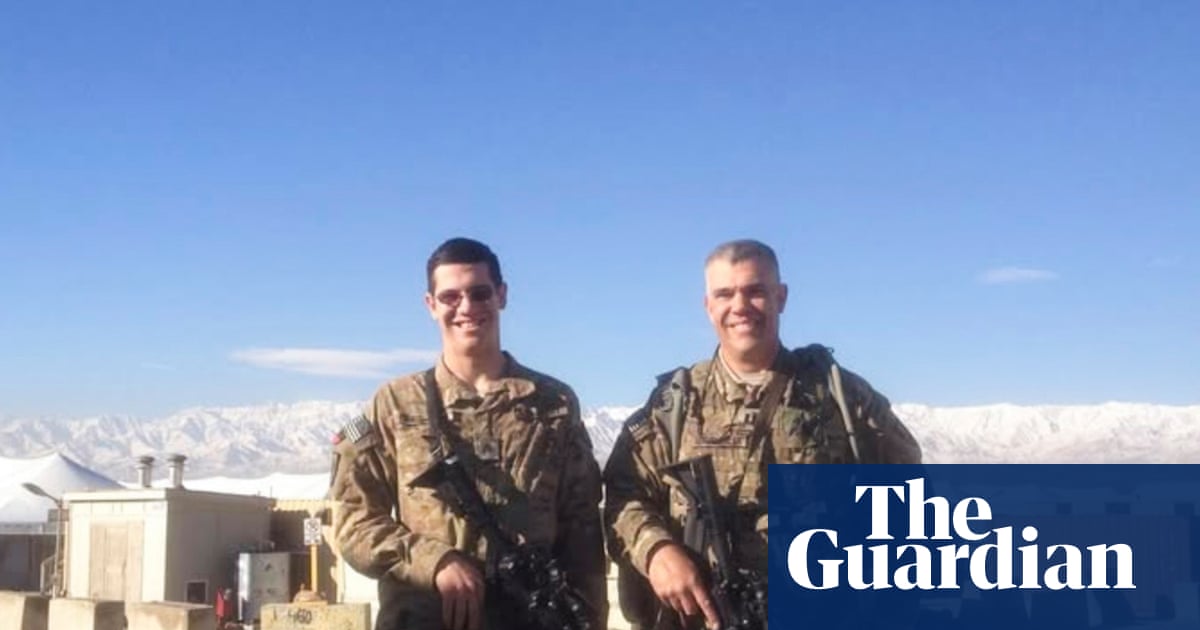

Comments